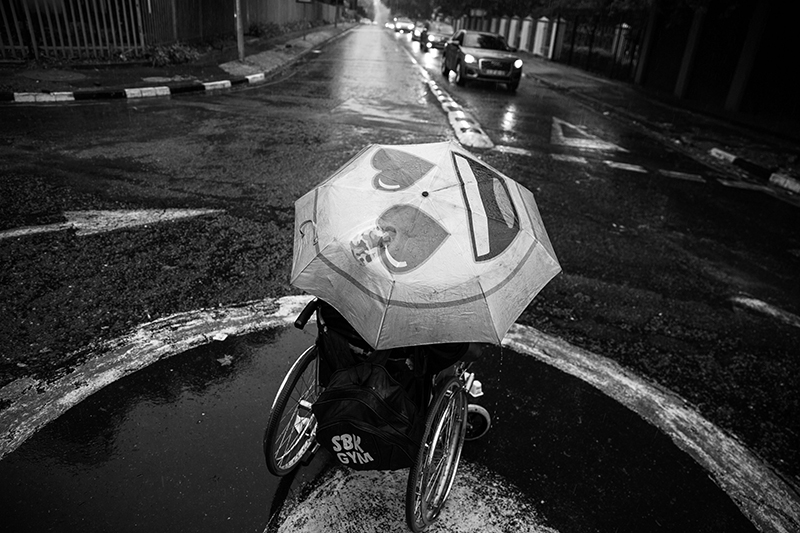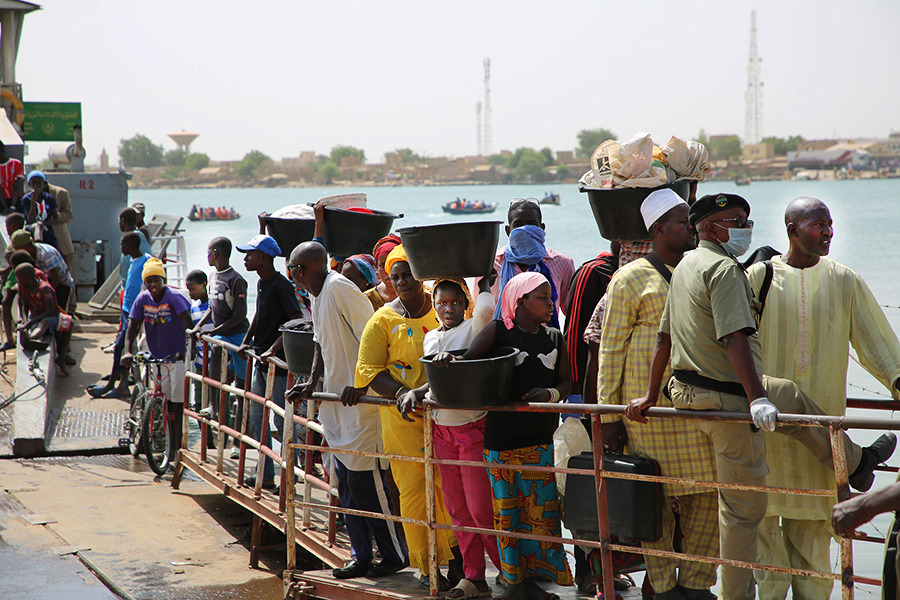For many lesbian, gay, bi, trans, intersex and queer (LGBTIQ+) people, leaving their communities in search of a safer and more welcoming place to call home is the only way to find a job, get access to healthcare or find safety from poverty, family rejection, criminalization, threats and violence. Often, discrimination doesn’t stop upon arrival at their destination. Many continue to face prejudice, harassment and violence both based on where they were born as well as based on their sexual orientation, gender identity/expression or sex characteristics. Trans and nonbinary people are particularly at risk. Find out how you can help at www.unfe.org/migrants/
Migrants
PLURAL+ is a youth video festival that encourages and empowers global youth to explore the issues of migration, diversity, social inclusion, and xenophobia through the production of short films. Meet some of the young filmmakers who have won awards for their outstanding videos calling for social change.
Most days, driving through the upmarket northern Johannesburg suburb of Illovo, you’re likely to see him sitting in his wheelchair at a traffic light on Corlett Drive. On Sundays, he’ll be sitting a block away on the traffic circle on North Street. For him, it’s about making enough money to survive another day. And for most of his adult life, that is exactly what Admire Makondo, 40, has been doing — surviving. Some days he’ll be sitting by himself, on other days a tall, wiry man will be with him, hovering in the background. This is Makondo’s friend, “brother” and roommate, Bhekani Ncube, 36. The two have been inseparable since meeting in the town of Musina in Limpopo more than a decade ago, each playing their part in looking after the other.
Nsikelelo and Samkelisiwe are siblings with albinism. They recently joined their mother, Enough Sihlongonyane, in South Africa, where she migrated from Eswatini. In South Africa, people with albinism are among the country’s most marginalized and vulnerable citizens, yet very little attention is paid to protect them from human rights abuses. Until recently, albinism has not been seen as a disability, but calls from the albinism community are growing for it to be classified as such. There have been reports in South Africa, and a number of other African countries, of people with albinism being murdered for their body parts, to be used in witchcraft rituals.
Migrants contribute their knowledge, networks, and skills to build stronger, more resilient communities. During the past months, migrants have been at the forefront of the fight against COVID-19. However, like many who find themselves living on the margins of society, migrants are disproportionately affected by COVID-19 through job losses, evictions and discrimination. The pandemic cannot an excuse to rollback commitments to protect the rights of migrants regardless of their legal status. On #MigrantsDay (18 December), let’s reaffirm our commitment to safe and dignified migration for all.




